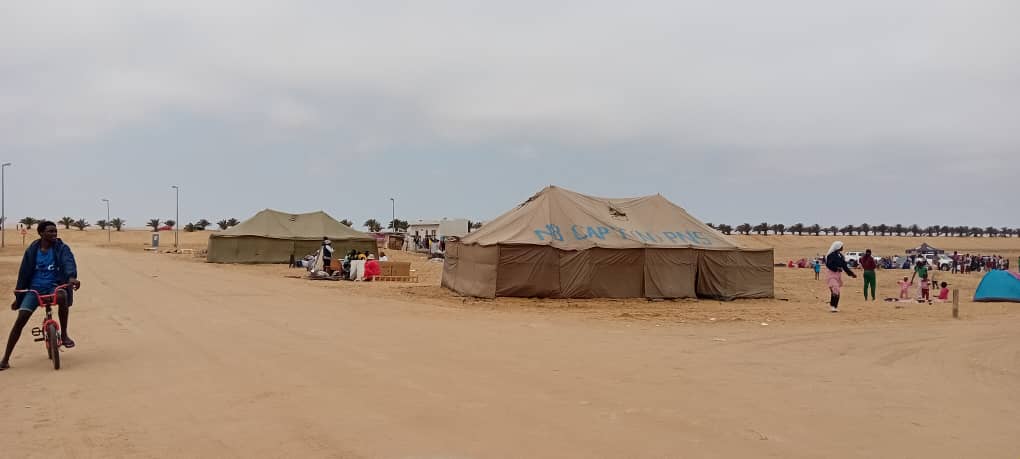PEOPLE living with HIV and AIDS have called on Government to review the effectiveness of its prevention from mother to child treatment (PMTCT) programme through involving those infected by the disease.
In that way, Government will be able to identify the gaps where women may be missing out on the programme, a treatment survey released on Friday said. The survey was conducted among HIV-positive Lironga Eparu members, healthcare workers and HIV-positive members of the Rainbow Project – an organisation for gay, lesbian, bisexual and transgender people.Katima Mulilo, Grootfontein, Tsumeb, Ondangwa, Oshakati, Khorixas, Keetmanshoop, Luederitz and Windhoek were visited in November 2005 for the survey.The study found that there was a need to assess the user-friendliness of healthcare facilities to people living with the disease.It called on the Ministry of Health and non-governmental organisations to pilot the training and use of infected people as “expert patients” as part of the anti-retroviral treatment (ART) treatment team.Such people could provide counselling, ART support and information, help patients to overcome adherence problems and act as a bridge between healthcare workers and patients.A significant number (21 per cent) of Lironga Eparu members interviewed said they had been “treated badly or unfairly” by hospital staff or healthcare workers.”A third of those who felt they had been maltreated by a health worker linked this with stigma-related behaviour and specified that a healthcare worker was afraid to touch them,” the report said.It said the findings where based on the perceptions of people living with the disease.”Nonetheless, perceptions are powerful, and shape behaviour and rumours,” it said.The report said people living with the disease must be involved in the review of the country’s prevention and treatment guidelines, as a way of moving towards a more proactive and holistic approach.It suggested that the Ministry of Health consider offering viral load tests – which checks the CD4 count of infected people – after six months of ART treatment and then annually, for everyone while health workers need to be trained in interpersonal communication.Launching the report, Dr Marcus !Goraseb of the Ministry of Health said the recommendations were excellent.”This is testimony that Namibians have taken a firm stand alongside the Government’s efforts,” he said.!Goraseb said the country’s national development agenda was in jeopardy because of the impact of HIV-AIDS.He said thorough planning with evidence-based information, dedication to challenges, sharing of experience and accountability were among the most important elements for a strategy to overcome the disease.”Our destiny is no longer a matter of chance, it is something to be achieved.We have to strive for greater heights for the sake of our nation,” he said.The survey was conducted among HIV-positive Lironga Eparu members, healthcare workers and HIV-positive members of the Rainbow Project – an organisation for gay, lesbian, bisexual and transgender people.Katima Mulilo, Grootfontein, Tsumeb, Ondangwa, Oshakati, Khorixas, Keetmanshoop, Luederitz and Windhoek were visited in November 2005 for the survey.The study found that there was a need to assess the user-friendliness of healthcare facilities to people living with the disease.It called on the Ministry of Health and non-governmental organisations to pilot the training and use of infected people as “expert patients” as part of the anti-retroviral treatment (ART) treatment team.Such people could provide counselling, ART support and information, help patients to overcome adherence problems and act as a bridge between healthcare workers and patients.A significant number (21 per cent) of Lironga Eparu members interviewed said they had been “treated badly or unfairly” by hospital staff or healthcare workers.”A third of those who felt they had been maltreated by a health worker linked this with stigma-related behaviour and specified that a healthcare worker was afraid to touch them,” the report said.It said the findings where based on the perceptions of people living with the disease.”Nonetheless, perceptions are powerful, and shape behaviour and rumours,” it said.The report said people living with the disease must be involved in the review of the country’s prevention and treatment guidelines, as a way of moving towards a more proactive and holistic approach.It suggested that the Ministry of Health consider offering viral load tests – which checks the CD4 count of infected people – after six months of ART treatment and then annually, for everyone while health workers need to be trained in interpersonal communication.Launching the report, Dr Marcus !Goraseb of the Ministry of Health said the recommendations were excellent.”This is testimony that Namibians have taken a firm stand alongside the Government’s efforts,” he said.!Goraseb said the country’s national development agenda was in jeopardy because of the impact of HIV-AIDS.He said thorough planning with evidence-based information, dedication to challenges, sharing of experience and accountability were among the most important elements for a strategy to overcome the disease.”Our destiny is no longer a matter of chance, it is something to be achieved.We have to strive for greater heights for the sake of our nation,” he said.
Stay informed with The Namibian – your source for credible journalism. Get in-depth reporting and opinions for
only N$85 a month. Invest in journalism, invest in democracy –
Subscribe Now!










